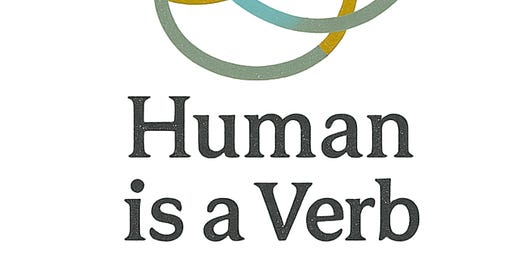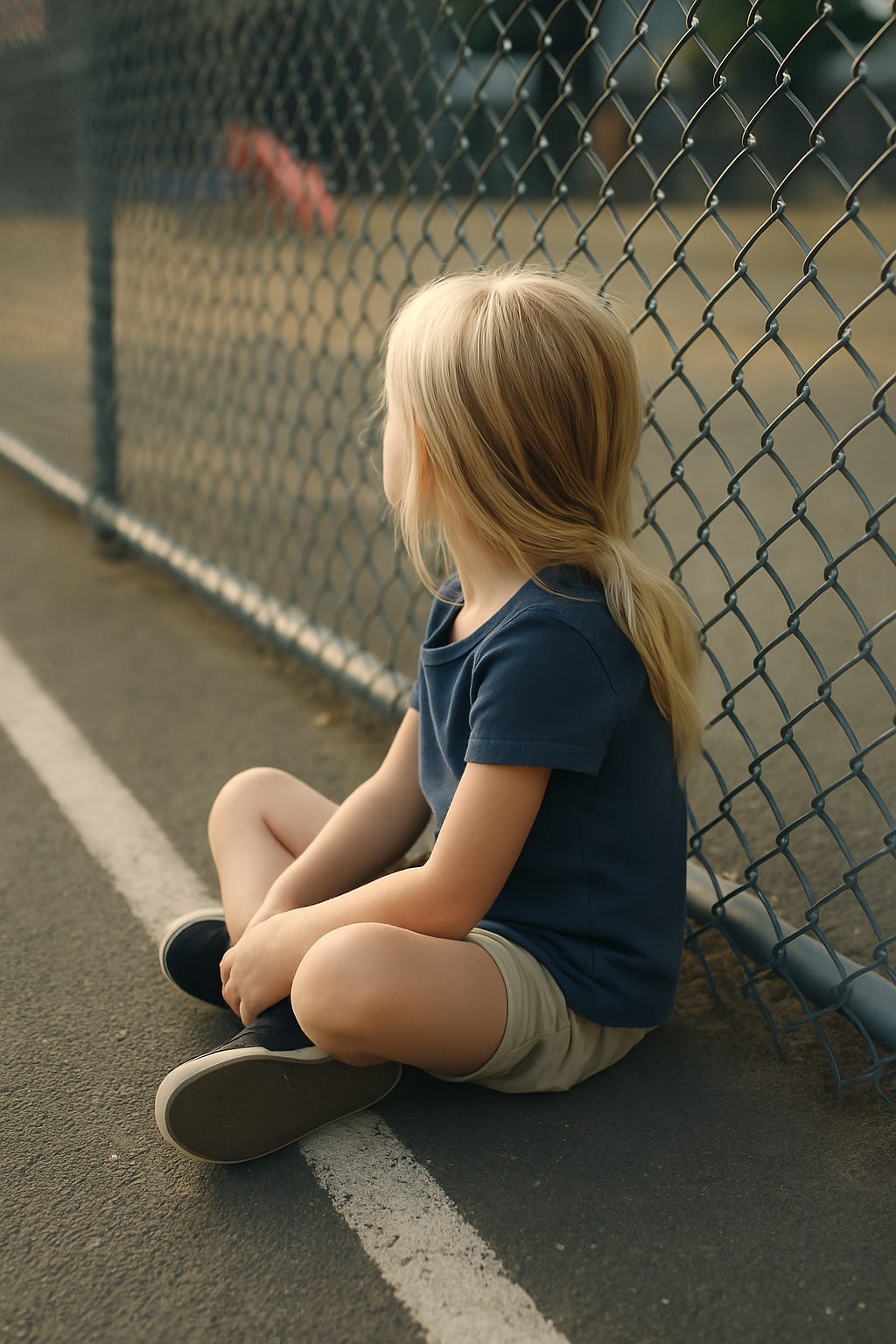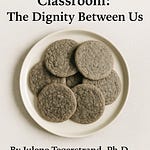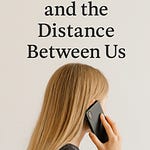One afternoon, I found myself standing at the kitchen counter with the fridge still open, not sure what I was looking for. I wasn’t hungry. I wasn’t even bored. I was just... full. Full of news updates I didn’t ask for, full of things I should be doing, full of opinions and noise and worry. The kind of full that makes you tired and a little mentally hangry.
I closed the fridge, walked into our office (we call it the Sunrise Room), and stared out the window to the expansive blue ocean of a horizon. I know, it sounds dreamy, and it is. I live like an unemployed ocean dweller: jobless, budget-aware, and ridiculously lucky to be near the sea. The white crests of waves pulled me back to my center. For a moment, I remembered something: the feeling of just watching, breathing, noticing. No agenda. No feed to refresh.
For the last few months, I've been responding to the call to slow my mind down so my emotions and body can heal. I'm calling it a sabbatical, but it's just a fancy way of saying I'm unemployed and need time to slow down and listen, to God, to myself, and to life.
I’ve been thinking a lot lately about the pace of life. It’s fast. The news cycle is relentless, the demands of daily life pile up, and family adds another layer of complexity for many people. Even the good stuff, learning, growth, and inspiration, feels like a weight. The more information I consume, the more I crave silence (after all, I'm wired like a Type 5 on the Enneagram, someone who lives in her head). When I say “presence,” I don’t mean productivity hacks or ten minutes of mindfulness tracked on an app. I mean that deep, grounded awareness when I stop striving and start listening to my breath, my body, and the moment I’m actually in. My body and soul are asking me to slow down and listen more than I learn.
Some days I wonder if the news's relentless pace is meant to exhaust us, distract us from what is real, true, and good. I’ve noticed that when I spend more time scrolling headlines, I’m more anxious, less curious, and definitely less kind. That can’t be an accident. Every day, there’s another wave of layoffs, another country being threatened, another public official bullied or discredited.
Honestly, if Chaos had a PR team, they’d be up for an award.
It’s enough to leave the nervous system frayed and the soul hiding, too afraid to risk exposure. It becomes harder and harder to secure the spaciousness we need for play, creativity, and rest. And what I, and maybe we, need more of in this season of the world is creativity and rest because these qualities feed our capacity for resilience. It becomes harder and harder to secure the spaciousness we need for play, creativity, and rest.
And maybe that’s what presence is: not just mindfulness or quiet time, but a kind of counter-cultural defiance. A decision to return to what’s real, to what heals, and to resist the speed and scarcity that so often define our days.
I need time to hear myself breathe, to notice the thoughts swirling in my head fall to my belly and dissipate. Writer and theologian Tricia Hersey reminds us that rest is not a luxury but a form of resistance—especially for those whose worth is tied to how much they produce. I think presence works the same way. It’s not lazy or passive. It’s a reclamation of humanity. Time to not be brilliant, or informed, or even “aware.” Time to just be. That kind of quiet attention, to my breath, to my thoughts, to the breeze hitting my windows, to the ocean waves unrolling like a red carpet for a queen, that’s what I mean by presence. Not just being physically somewhere but letting my awareness catch up to my body. Letting life touch me without rushing to fix or perform or post about it.
In The Art of Passing Over (Paulist Press, 1988), Francis Dorff talks about “letting be.” Not fixing. Not escaping. Just allowing what is to be. Letting be, he writes, is the fruit of a long schooling in reverence (Dorff, 1988, p.#). We are more inclined to make things happen than to let them happen (Dorff, 1988, p.#). Dorff’s idea of “letting be” isn’t passive—it’s an act of faith, a counter to the constant push to fix, hustle, or perform. It reminds me that stillness is not the absence of movement but the presence of depth. That phrase keeps returning to me. Let it be. Let me be.
And then this memory surfaced.
I remember sitting alone on the recess line when I was a little girl. I don’t remember feeling lonely. But I do remember that someone asked me to change how I was acting, like there was something wrong with me for sitting there quietly, away from the other kids. I sense I was far away from the playground action, but now, as an adult, I suspect it wasn’t all that far. I was just apart. I was a contemplative child.
Was I a loner? That I even ask myself this question suggests that something in me believes I was—and I still have this tendency. But this part of me, a loner, is also a deep thinker. She has the playground of the world in her mind.
I didn’t want to be anything. I didn’t want anything asked of me. I just wanted a break from teachers, from peers, from noise. And because it wasn’t seen as a positive thing, I internalized that something must be wrong with me.
But if I could go back now and be the teacher, I would kneel beside that little girl and say:
"Julene, I see you sitting here against the fence. Are you enjoying this time because you can rest and be quiet?"
And she might say, "Yes."
Then I’d say, "Sometimes I need to be alone too. What do you do when you're here?"
She might answer, "I just think. I watch the kids. I notice the breeze. I feel it against my skin. I see the clouds moving slowly. I watch the birds pecking at the sand. I look at the different blues in the sky. I watch the clouds move and look for the stories they are telling. Like today, two cats are wrestling, and then one nuzzled its face into the other and started licking its ear. I saw them chasing each other."
And I would say, "It sounds like a playground in your mind. That’s beautiful. Julene, I’m so impressed with your capacity to play. I’m so sorry that no one recognized this before. What you are doing, this being, noticing, feeling, is important."
"This world needs someone like you who can pause, observe, breathe, and play with the beauty around her. You have a window into the world far beyond your years."
As an adult, I now see how the world often favors the loud, active, obvious forms of play. But we also need the slow, still, deep noticing. We need people who can listen to the inner and outer worlds and bring them into conversation.
That little girl wasn’t doing anything wrong. She was practicing presence. And I trust her. That moment wasn’t just about childhood solitude. It was about learning to hold space and be still when the world pushes for noise. That’s the practice I’m reclaiming now.
And maybe that’s what I’m being invited into now, not achieving something new, but returning to someone ancient in me. Maybe she’s been waiting by the fence, watching the breeze, offering me her attention if only I’ll stop long enough to listen. I know, it might sound naïve. In a world burning with injustice and noise, presence might seem passive. But what if it’s the only way to stay human in the middle of the fire?
Throughout this season, I’ve learned that slowing down is not the same as stepping out. It’s stepping deeper in, into myself, into memory, into the kinds of wisdom that get drowned out by noise. My experiences of stillness, childhood solitude, and choosing breath over reaction have taught me that presence isn’t soft. It’s serious work. And it changes the way I live. That’s why I say presence is resistance. It doesn’t shout, tweet, or produce, but it reclaims the self from systems that profit from our exhaustion.
So, today, I let her be.
And I let myself be, too.
And maybe tomorrow, when the next headline breaks, when the next outrage hits the feed, I’ll remember what she taught me. That I can step back. I don’t have to plug into every crisis or chase every fire. That there’s wisdom in choosing to turn toward the wind, the clouds, the quiet playground in my mind. Presence, the kind that slows the scroll, calms the panic, and brings me back to what’s real, isn’t just personal. In a culture that thrives on overstimulation and disconnection, presence becomes a radical act of resistance against the systems that keep us anxious, distracted, and numb.
Note: ChatGPT was used to develop the image of a blonde child and to aid in editing this piece.








Share this post